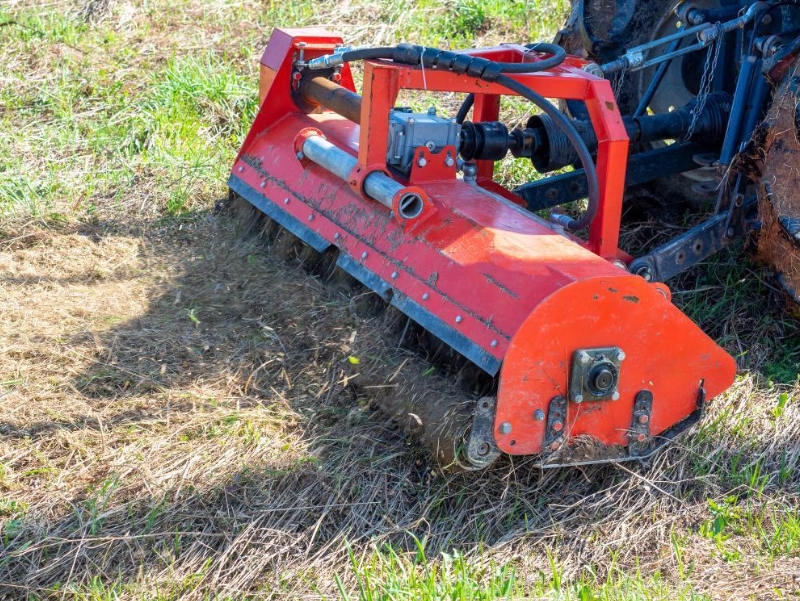
For generations, yard cleanup meant rakes, leaf bags, and a trip to the dump. But in 2025, the modern backyard looks a little different, quieter, cleaner, and more sustainable. With the rise of small-scale shredders, composters, and electric-powered tools, homeowners are discovering that what once felt like waste can actually become a renewable resource.
When searching for the right gear, many homeowners start with guides like Equipment Outfitters, which explain the differences between wood chippers, shredders, and mulchers. But beyond the choice of equipment lies a broader shift in mindset: transforming backyard debris into something useful, all while reducing landfill impact.
Across North America, sustainability is no longer confined to recycling bins and solar panels, it’s growing right out of our gardens.
The Rise of Backyard Circularity
In a circular economy, resources are reused rather than discarded. Until recently, that concept felt too large for most households to act on. But technology has changed that.
Compact electric wood chippers and garden shredders have made it possible for homeowners to process yard waste directly on-site, turning branches and leaves into mulch that nourishes the same soil they came from. Composting systems, now smarter and more efficient than ever, handle the rest, converting organic scraps into rich, usable compost within weeks.
These innovations represent a new kind of circularity at the household level: one that reduces waste, saves money, and cuts emissions from hauling debris to landfills.
“People are realizing they don’t need to outsource sustainability,” says landscape consultant Kelly Andrews. “With the right equipment and a little consistency, anyone can close the loop in their own backyard.”
Why Yard Waste Matters
According to the U.S. Environmental Protection Agency, yard trimmings and organic debris make up more than 12% of all municipal solid waste in the United States, roughly 35 million tons annually. Much of that material could be composted or reused.
When organic waste decomposes in landfills, it produces methane, a greenhouse gas far more potent than carbon dioxide. Mulching or composting at home prevents that release and enriches local ecosystems instead.
This shift from disposal to reuse is part of a growing movement among environmentally conscious consumers. The same way solar panels made clean energy personal, shredders and composters are helping households generate their own environmental impact.
From Manual to Smart: How Equipment Is Evolving
A decade ago, wood chippers and shredders were loud, gas-powered, and intimidating to operate. Today’s versions are sleek, efficient, and increasingly electric. Battery technology has advanced to the point where small to mid-sized electric units can handle everything from twigs to 2-inch branches without the noise or fumes.
Some newer models even include smart sensors to prevent clogs and optimize cutting speed based on the density of the wood. Compact form factors mean they fit neatly in suburban garages or sheds, making sustainable waste management easier to integrate into everyday routines.
“Manufacturers have started listening to consumers who want performance without pollution,” Andrews adds. “You no longer need a truck or ear protection to turn debris into usable mulch.”
Even composting has entered the tech era. Smart composters now use heat control, airflow sensors, and app integration to speed up decomposition, while countertop versions bring the process indoors for food waste.
The New Language of Sustainability
The growth of at-home waste recycling tools has changed more than routines, it’s changing how people talk about their impact.
Mulch, once just a landscaping term, now symbolizes self-sufficiency. Homeowners proudly share before-and-after photos of their compost bins on social media, turning what was once a chore into a badge of environmental pride.
Community workshops and local municipalities are also getting involved, offering rebates or training sessions for residents who want to reduce green waste. In some areas, cities are even partnering with equipment suppliers to encourage sustainable disposal habits.
“People like seeing the cycle completed,” says Andrews. “They cut, they mulch, they reuse, it’s tangible progress they can see and touch.”
Economic Benefits Beyond the Backyard
While the environmental arguments are strong, there’s also a financial angle.
Yard waste disposal can cost hundreds of dollars a year in pickup fees or landfill transport. By processing materials at home, homeowners save both money and time. Mulching also helps retain soil moisture, reducing the need for irrigation and fertilizers, two other cost drivers in landscaping.
At a larger scale, local governments benefit too. Reduced yard waste collection eases pressure on municipal systems, cutting fuel use and landfill space.
Meanwhile, small landscaping and tree-care businesses are adopting portable shredders as part of their service model, offering customers “zero-waste” cleanup options where debris stays on-site as mulch.
What began as an environmental choice has become an economic one.
Challenges and Considerations
Of course, not every backyard is ready for industrial-level recycling. Power capacity, storage, and safety remain important considerations.
Experts recommend reading safety guidelines before using high-torque equipment, wearing protective gear, and ensuring that machines are suited to your specific property size and vegetation type.
And while electric models reduce emissions, they do rely on local power grids, meaning renewable energy sources amplify their benefits.
“The key is thoughtful use,” says Andrews. “Sustainability isn’t just buying new tools. It’s learning how to use them responsibly.”
From Waste to Worth
The growing interest in backyard circularity represents something larger than just convenience, it’s a cultural change in how people view waste itself.
Every chipped branch, mulched leaf, or composted peel represents a small act of renewal. It’s not just about tidier yards; it’s about shifting from consumption to stewardship.
Whether through local composting programs or household tech upgrades, one thing is clear: waste, when managed wisely, becomes worth. And as more homeowners embrace this mindset, sustainability won’t just happen in cities or factories, it’ll start right at home, one yard at a time.
Media Contact
Company Name: Equipment Outfitters
Contact Person: Mr. David
Email:Send Email
Address:3568 Roger B. Chaffee Memorial Blvd. SE
City: Wyoming
State: MI 49548
Country: United States
Website: equipment-outfitters.com
